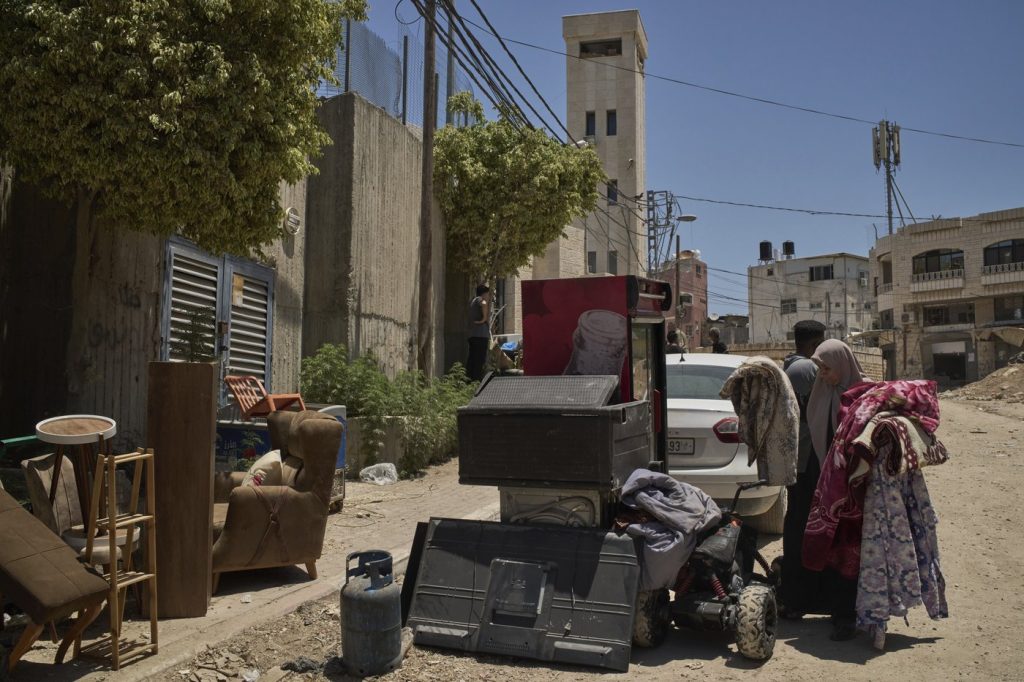TULKAREM REFUGEE CAMP, West Bank (AP) - In a recent escalation of an ongoing military operation in the West Bank, hundreds of Palestinians have fled their homes in a section of the Tulkarem refugee camp following the issuance of Israeli demolition orders. This displacement is part of a wider trend, with tens of thousands having been uprooted in the region amid the largest displacement crisis since Israel captured the territory in the 1967 Mideast war.
The order for demolition affects approximately 104 buildings, impacting around 400 families who now face homelessness, according to Faisal Salama, a local official. On Wednesday, residents hurriedly packed their belongings—including mattresses, blankets, and household appliances—before leaving their homes, some under the looming threat of demolition.
Late on Wednesday evening, Israel's Supreme Court issued a temporary freeze on the planned demolitions, responding to a petition from Adalah, a Palestinian human rights organization based in Israel. While the freeze gives the Israeli army until September 2 to respond, displaced families have not returned as of the latest updates. The Israeli military did not provide comments regarding the order.
The recent exodus of residents comes in the wake of heightened Israeli operations aimed at quelling militancy in West Bank refugee camps. This escalation followed the October 7, 2023, attack by Hamas, which has since triggered extensive military responses across the territory. Salama noted that with the latest demolition orders, the total number of displaced families has reached 1,000.
The Israeli military justified their actions in Tulkarem, stating that they operate in regions identified as having a high level of terrorism. They claimed that the decision to demolish buildings was deemed necessary for operational freedom and that all other options had been exhausted.
The ongoing military raids have severely damaged and depopulated several refugee camps in northern West Bank, including Tulkarem and Nur Shams. The Israeli army has indicated that its troops may remain in some camps for up to a year. Concerns are mounting regarding the future of those displaced, as community leaders question the lack of viable housing options.
Subhi Hamdan, a 65-year-old resident, expressed his anxiety over the short notice he received to vacate his home. With limited resources, he fears he will not be able to secure alternative accommodation, despite his registration for assistance with the financially strained Palestinian Authority. “Where can anyone go?” he lamented, highlighting the desperation many residents face as they are forced to flee with little recourse.
The grim reality for these families is underscored by the ongoing humanitarian crisis and the uncertainty surrounding their living conditions. As displacement continues in Tulkarem and other regions, the immediate needs of these uprooted individuals remain dire, amplifying the calls for international attention and assistance in the face of escalating conflict.












